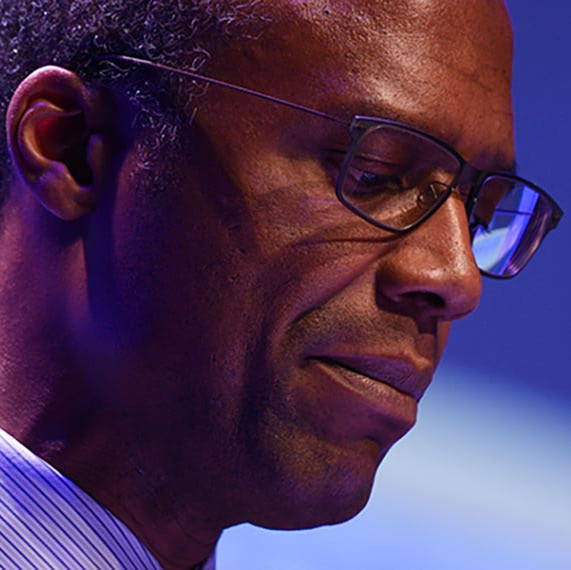Classrooms to reopen wherever possible despite calls for all schools in England to move learning online

@BorisJohnson announced new national restrictions on 4th Jan which now include the closure of school and college buildings, except to the children of key workers and vulnerable children.
The new plans from the government will see primary school, secondary school and college buildings closed for the majority of pupils until mid February, while also confirming that not all exams will go ahead as planned in the summer.
@EducationGovUK has clarified their latest position on schools opening.
The government yesterday (1 January) announced that following a further review of the transmission rates, from Monday 4 January, London primary schools will be required to provide remote learning to all children but vulnerable and critical worker children who will continue to attend school.
The education contingency framework will be implemented across all London boroughs, but in other parts of England Secondary Schools and Colleges will offer online lessons, but Primary Schools are to open as usual, even those in Tier 4.
A Department for Education spokesperson said:
“Children’s education has consistently been a national priority, which is why we want classrooms to reopen wherever possible in the new term. Schools will continue to implement appropriate safety measures to help mitigate the risk of transmission.
“As we’ve said, we will move to remote education as a last resort, with involvement of public health officials, in areas where infection and pressures on the NHS are highest.”
Urgent revisions to the government’s plans for schools in January are needed
 Paul Whiteman, general secretary of school leaders’ union NAHT, said:
Paul Whiteman, general secretary of school leaders’ union NAHT, said:
“We want to see children in school. It is the best place for their education and their wider wellbeing.
“We understand that the government has been seeking to strike a balance between minimising the risk of transfer of COVID-19 and providing face to face education for all children. However, the latest data shows that in large parts of the country, control of infection has been lost and the lack of understanding regarding the new strain has now created intolerable risk to many school communities.”
We believe that the government should take the following steps:
- Move all schools to home learning for a brief and determined period for most children.
- During this time, proper support to make the home learning experience as good as it can be should be provided. That includes technology and learning resources but also the flexibility for school leaders to respond to their circumstances. A centralised, prescriptive approach is too constrained.
- The government should then establish a properly organised, resourced and funded mass testing regime for schools in place of the botched DIY system currently being imposed.
- Work should be undertaken with school leaders and PHE to establish and agree new covid-related safety measures in schools during the temporary restriction.
- Urgently review its approach to special schools, APs and Maintained Nursery Schools to protect all staff and pupils in those communities.
- Immediately prioritise vaccinations in education
- Then agree an orderly return
Mr Whiteman continued: “We believe that it is wrong to keep people in harm’s way whilst the implications of the new variant of the virus are still being discovered. The currently available information contains no solid scientific evidence regarding the impact of the new variant on schools. In particular, there is nothing that outlines the risks to pupils and teachers of maintaining in-person tuition. With this in mind we had begun legal proceedings against the government to force them to disclose the scientific information they are withholding.
“We have asked the government to share the evidence justifying distinctions drawn between primary and secondary schools, the geographical distinctions they have made and the evidence justifying the compulsory introduction of mass-testing.”
CALLS FOR AN IMMEDIATE NATIONWIDE MOVE TO REMOTE EDUCATION
The NASUWT – The Teachers’ Union has called on the Secretary of State for Education to introduce an immediate nationwide move to remote education for all pupils in primary, secondary and special schools and colleges.
In a letter to Gavin Williamson, NASUWT General Secretary Dr Patrick Roach states that this is “is the only sensible and credible option at this time to minimise the risks to those working in schools and to safeguard public health”.
Dr Roach points out that, as the Government has confirmed, the country finds itself in the grip of an escalation of virus transmission which, the NASUWT believes strongly, requires additional urgent measures beyond those set out to date.
 Dr Roach, NASUWT General Secretary, said:
Dr Roach, NASUWT General Secretary, said:
“The NASUWT is completely committed to ensuring that children can return to school as quickly as possible.
“However, it is now abundantly clear that the pandemic is seriously impacting on the ability of all schools and colleges to continue to operate normally.
“There is genuine concern that schools and colleges are not able to reopen fully and safely at this time.
“The NASUWT remains of the view that schools, colleges and other settings should only remain open to all pupils where it is safe for them to do so.
“The NASUWT will not hesitate to take appropriate action in order to protect members whose safety is put at risk as a result of the failure of employers or the Government to ensure safe working conditions in schools and colleges.”
The NASUWT has also written to employers to remind them that with the impending reopening of schools and colleges, it is essential that their previous covid-security plans are revised and updated.
Ministers must delay school reopening by a fortnight, says UNISON
The government must delay the reopening of all schools in England by two weeks to minimise the spread of Covid-19, UNISON says.
The union is joining with other education unions in demanding that remote learning should be introduced for pupils of primary schools across the country, in line with the delay for secondary schools.
 UNISON head of education Jon Richards said:
UNISON head of education Jon Richards said:
“The Government must act decisively now by delaying the start of term for all schools by two weeks because of spiralling infection rates. Education should move online except for vulnerable children and those of key workers.
“UNISON has been calling for this ‘circuit-break’ since well before Christmas. Ministers have had weeks to get this right instead of leaving parents, staff and whole communities confused.
“The union is clear that members who work in schools have a right to a safe working environment. They shouldn‘t have to work where they face serious and imminent danger.
“Ministers must also ensure any extension of the vaccine priority list covers all school staff and not just teachers.”
NEU calls for all primary schools in England to move learning online
The National Education Union is calling upon Government to move learning online in all primary schools including primary special schools in England for at least 2 weeks and issuing advice to all members informing them of their legal rights not to have to work in an unsafe environment.
 Kevin Courtney, Joint General Secretary of the National Education Union, said:
Kevin Courtney, Joint General Secretary of the National Education Union, said:
“The National Education Union knows that the science suggests that to get infection rates down schools should not be open in the first two weeks of January.
‘The reports from the London School of Hygiene and Tropical Medicine from the 23rd of December, the Sage papers dated 22nd of December but released on 31st of December or the report from Imperial College on the 31st of December – all have the same message – that it will not be possible with the new variant to get R below one without at least a period of school closure.
‘Cases were rising rapidly amongst school age children at the end of last term and they were the highest rates of any demographics. These children live as part of families and in communities and they can spread the infection into their families and into the wider community.
‘There is scientific concern that the new variant might be more prevalent amongst younger people than the previous variants.
‘We are calling on Gavin Williamson to actually do what he professes he does – to follow the science and announce, now, that primary schools in England should move learning online – apart from key worker and vulnerable children for at least the first two weeks of January.
‘It is not good enough to always be behind the curve, playing catch up with new strains of COVID, seeing hospital admissions rise and cases numbers spiral out of control.
‘Whilst we are calling on the Government to take the right steps as a responsible Union we cannot simply agree that the Government’s wrong steps should be implemented.
‘That is why we are doing our job as a union by informing our members that they have a legal right to refuse to work in unsafe conditions which are a danger to their health and to the health of their school communities and more generally.
We are informing our members of their legal right to protection to be guided by the science. In order for viral levels in children and in the community to decrease to below R1 primary schools should not open in the first weeks of January. We will be informing our members that they have the right to work in safe conditions which do not endanger their health. This means that they can be available to work from home and to work with key worker and vulnerable children but not available to take full classes from Monday, the 4th of January.
‘We realise that this late notice is a huge inconvenience for parents and for head teachers. The fault, however, is of the Government’s own making and is a result of their inability to understand data, their indecisiveness and their reckless approach to their central duty – to safeguard public health.
‘Education is really, really important but you’re not going to get that education if this virus gets out of control in the community as schools will have to close then for a longer period of time.
‘We do want schools to be open safely as soon as possible. We want to work with Government to achieve that central aim”.
Contingency framework implemented across all London boroughs
Restrictions on primary schools will now be introduced across all London boroughs.
In light of Covid case rates rising rapidly across the capital and ongoing engagement with London leaders and the evidence submitted, the government has reviewed the London boroughs where the contingency framework will apply, with all further boroughs added.
The contingency framework is being implemented across London as a last resort to help supress the spread of the virus in the community, protect public health and save lives. The framework is not being implemented due to safety concerns in education. Schools have well established protective measures in place to maximise safety for pupils and staff and help reduce the risk of transmission.
Decisions on which areas are subject to the contingency framework are taken working closely with Public Health England, Department of Health and Social Care and the NHS. Due to the fast moving situation, and where local conditions are changing rapidly, the review of London boroughs was brought forward for a decision today as part of the contingency framework process.
Early years will remain open in London, as will alternative provision and special schools.
 Education Secretary Gavin Williamson said:
Education Secretary Gavin Williamson said:
“Children’s education and wellbeing remains a national priority. Moving further parts of London to remote education really is a last resort and a temporary solution.
“As infection rates rise across the country, and particularly in London, we must make this move to protect our country and the NHS.
“We will continue keep the list of local authorities under review, and reopen classrooms as soon as we possibly can.”
 Health and Social Care Secretary Matt Hancock said:
Health and Social Care Secretary Matt Hancock said:
“Over the past week we have seen infections and hospitalisations rise sharply across London and hospitals are coming under increased pressure.
“While our priority is to keep as many children as possible in school, we have to strike a balance between education and infection rates and pressures on the NHS.
“The situation in London continues to worsen and so today we are taking action to protect the public and reduce the spread of this disease in the community.
“Everyone across London must take this situation incredibly seriously and act responsibly to minimise the spread of this deadly disease.”
Another last minute U-turn as Government announces all London primaries are to stay closed until 18 January at least
 Commenting on the latest decision by Government to close all London primary schools until 18 January at the earliest, Dr Mary Bousted, Joint General Secretary of the National Education Union, said:
Commenting on the latest decision by Government to close all London primary schools until 18 January at the earliest, Dr Mary Bousted, Joint General Secretary of the National Education Union, said:
“It is welcome that, albeit in their usual last-minute fashion, ministers have corrected an obviously nonsensical position – one that it could not justify by evidence or sense.
“But the question has to be asked: why are education ministers so inadequate and inept? Who is advising them?
“And what is right for London is right for the rest of the country. With the highest level of Covid-19 infection, and hospitals buckling under the tsunami of very ill patients, it is time for ministers to do their duty – to protect the NHS by following SAGE advice and close all primary and secondary schools to reduce the R rate below 1.
“It is time for the government to protect its citizens, and in particular its children, by shutting all primary schools for two weeks in order for the situation to be properly assessed, schools made much safer and children and their families protected.”
Gavin Williamson’s incompetence is creating huge stress for parents, pupils, and school staff, say Labour
 Kate Green MP, Labour’s Shadow Education Secretary, said:
Kate Green MP, Labour’s Shadow Education Secretary, said:
“This is yet another government u-turn creating chaos for parents just two days before the start of term. Gavin Williamson’s incompetent handling of the return of schools and colleges is creating huge stress for parents, pupils, and school and college staff and damaging children’s education.
“The government failed to get mass testing for schools and colleges in place when Labour called for it and they have failed to develop credible plans for remote learning when pupils cannot be in school.
“This u-turn was needed to provide consistency in London. However, Gavin Williamson must still clarify why some schools in tier 4 are closing and what the criteria for reopening will be. School and college staff urgently need reassurance that the government is putting proper support in place to make all schools Covid secure work environments.”
Ministers must delay school reopening by a fortnight, says UNISON
The government must delay the reopening of all schools in England by two weeks to minimise the spread of Covid-19, UNISON says.
The union is joining with other education unions in demanding that remote learning should be introduced for pupils of primary schools across the country, in line with the delay for secondary schools.

UNISON head of education Jon Richards said:
“The Government must act decisively now by delaying the start of term for all schools by two weeks because of spiralling infection rates. Education should move online except for vulnerable children and those of key workers.
“UNISON has been calling for this ‘circuit-break’ since well before Christmas. Ministers have had weeks to get this right instead of leaving parents, staff and whole communities confused.
“The union is clear that members who work in schools have a right to a safe working environment. They shouldn‘t have to work where they face serious and imminent danger.
“Ministers must also ensure any extension of the vaccine priority list covers all school staff and not just teachers.”
Reopening delay is sensible to make school mass testing work, Jon Richards said:
“Everyone agrees it’s important for schools and colleges to open but it can’t be at any expense when infections are rising.
“This delay for secondary schools is a sensible decision, giving more time to organise mass testing effectively to limit the spread. Primary and early years reopening should also be delayed because social distancing isn’t really possible.
“Ministers should also ensure any moves to extend the vaccine priority list must cover all school staff and not just teachers.”
Evidence shows the new strain of COVID-19 is increasing across the country
The majority of the cases identified in London, the South East and the East of England are of the new variant. Infection rates have increased faster than expected in these areas where the new strain has been circulating and stronger measures are required to get the virus under control.
To support high quality remote education during this period, the government expects to deliver over 50,000 laptops and tablets to schools across the country on Monday 4 January, and over 100,000 in total during the first week of term. Over 1 million devices will be provided in total.
The current plans for rapid testing in secondary schools and colleges remain in place, with two rapid tests available to all secondary and college students and staff at the start of term to identify asymptomatic cases.
The first starter packs of up to 1,000 test kits will arrive at all secondary schools and colleges on 04 January. The 1,500 military personnel committed to supporting secondary schools and colleges remain in place, providing virtual training advice and guidance on establishing the testing process with teams on standby to provide in-person support if required.
Daily testing of all staff and students that have been a close contact of a confirmed case, reducing the need for self-isolation, will continue to be available to all secondary schools and colleges from the first week of term, along with weekly rapid tests for all staff in secondary schools, colleges, special schools and alternative provision.
All pupils, students and staff are encouraged to consent to testing, as are parents of pupils under 16. Testing for primary school staff will follow in the second half of January.
The rollout of laptops and tablets to schools on this scale follows close collaboration between the government and its partner organisations, which has seen over 560,000 devices delivered to schools and councils since the start of the pandemic. With the further rollout this term, over one million will be provided in total – making the programme one of the largest of its kind in the world.
Areas with primary schools subject to the contingency framework from the start of term are:
Additional London boroughs added: Camden, City of London, Greenwich, Hackney, Haringey, Harrow, Islington, Kingston upon Thames, Lambeth, Lewisham
Original London: Barking and Dagenham, Barnet, Bexley, Brent, Bromley, Croydon, Ealing, Enfield, Hammersmith and Fulham, Havering, Hillingdon, Hounslow, Kensington and Chelsea, Merton, Newham, Redbridge, Richmond-Upon-Thames Southwark, Sutton, Tower Hamlets, Waltham Forest, Wandsworth, Westminster
Making sure that pupils can work from home
To support the hard work of schools in delivering remote education, the department has made £4.84 million available for Oak National Academy to provide video lessons in a broad range of subjects for Reception up to Year 11.
Oak National Academy was created in April 2020 as a national response to the pandemic, with teachers and education experts creating online lessons. In its first term pupils took part in over 20 million lessons. It is staying open for all of 2020/21 to support contingency planning, remote and in-school teaching.
Since September pupils have taken part in a further 9 million lessons, with numbers rapidly increasing week on week as classes isolated due to increasing infection rates. The online classroom and resource hub created by teachers, for teachers, provides nearly 10,000 high-quality video lessons and resources, with content across primary, secondary and specialist schools.
 Matt Hood, Principal of Oak National Academy said:
Matt Hood, Principal of Oak National Academy said:
“With cases of coronavirus surging, it is clear our schools continue to face significant challenges.
“The best place for pupils is to be in the classroom with their teacher. But this can only happen when it is safe for everyone. We must therefore ramp up support for pupils and teachers so education can continue remotely until school-based testing is fully rolled out. This means getting devices and, crucially, free data to every pupil.
“Since the start of the pandemic, Oak National Academy has delivered 30 million online lessons to children impacted by coronavirus. We expect this to grow significantly in the coming weeks, and we stand ready to support teachers as they again keep their classes learning in the most difficult circumstances.”
This provides support to schools in developing the ability to switch from classroom teaching to remote provision immediately in case of local restrictions or self-isolation. Specialist content for pupils with special educational needs and disabilities (SEND) is also available. Oak will remain a free optional resource for 2020-21.
To support high quality remote education during this period, the government expects to deliver over 50,000 laptops and tablets to schools across the country on Monday 4 January, and over 100,000 in total during the first week of term, the programme will continue to deliver devices to schools and colleges throughout this term. DfE provided over 560,000 laptops and tablets to schools and local authorities in 2020, so schools are well-prepared to deliver remote education.
Over one million devices have been purchased for disadvantaged young people through this pandemic, supporting schools, colleges and students to ensure remote education is as strong as it can be. Government has now invested £300 million to support remote education and social care, including providing devices and internet access to pupils who need it most.












Responses